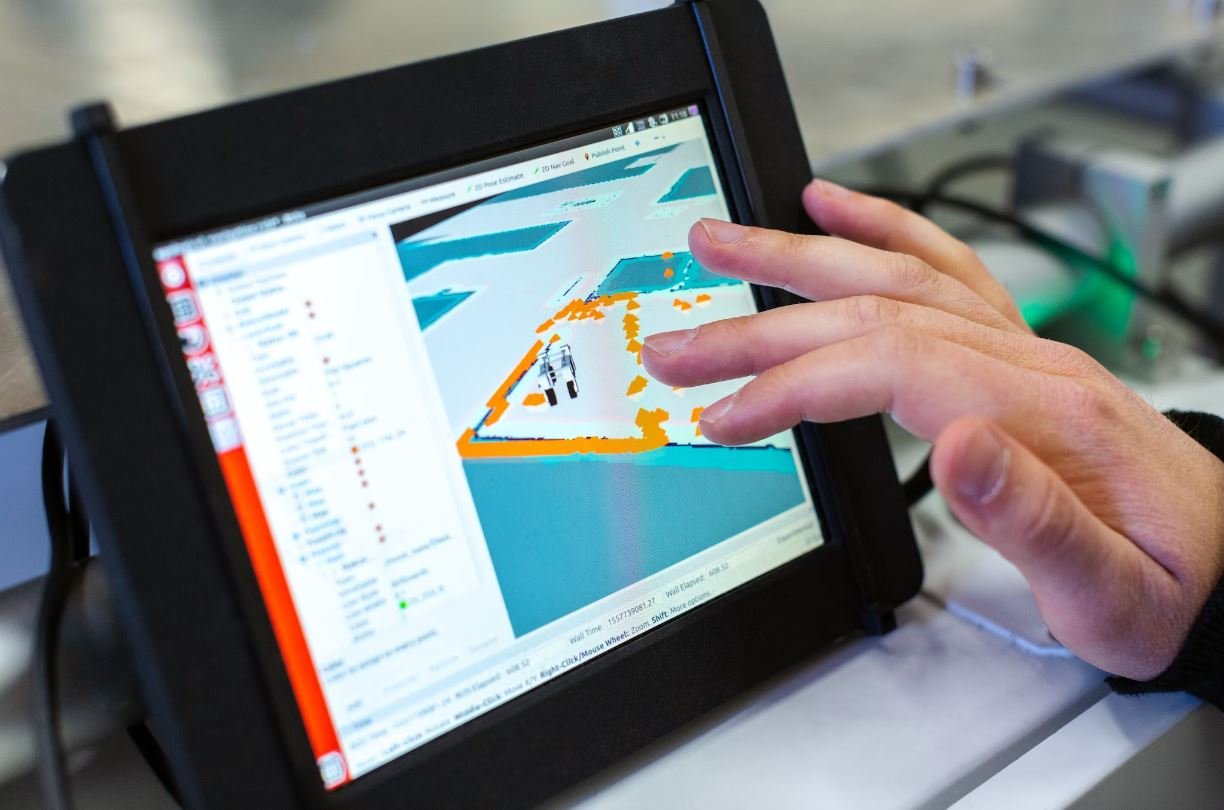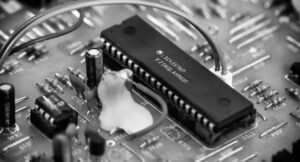Artificial Intelligence Applications and Innovations
Artificial Intelligence (AI) has made significant advancements in recent years, impacting various industries and revolutionizing the way we live and work. AI systems are designed to perform tasks that typically require human intelligence, including speech recognition, problem-solving, learning, and decision-making. From healthcare and finance to transportation and entertainment, here are some key applications and innovations in AI today.
Key Takeaways:
- Artificial Intelligence (AI) has transformed various industries through its ability to replicate human intelligence.
- AI applications range from healthcare and finance to transportation and entertainment.
- Some of the notable AI innovations include autonomous vehicles, virtual assistants, and medical diagnosis systems.
Healthcare
In the field of healthcare, AI is being used to improve patient care, enhance diagnostics, and streamline administrative tasks. AI-powered systems are capable of analyzing medical data to provide insights, detect patterns, and assist in diagnosing diseases. Additionally, robots equipped with AI algorithms are being used in surgical procedures, offering higher precision and reducing the risk of errors. *AI has the potential to save lives by aiding doctors in early detection of diseases through medical imaging analysis.*
Finance
The finance industry has embraced AI to enhance financial operations, risk management, and customer service. AI algorithms are used to analyze large volumes of financial data, predict market trends, and identify investment opportunities. Automated virtual assistants, powered by AI, are also being implemented to provide personalized banking experiences and support customers in their financial decisions. *Through the use of AI, financial institutions are able to make data-driven decisions and improve overall customer satisfaction.*
Transportation
AI technologies have transformed the transportation sector with the development of Autonomous Vehicles (AVs) and Intelligent Transportation Systems (ITS). AVs rely on AI algorithms and sensors to navigate and make decisions on the road, leading to safer and more efficient transportation. ITS utilizes AI to optimize traffic flow, monitor and manage transportation infrastructure, and improve mobility. *The introduction of self-driving cars has the potential to revolutionize transportation and reduce accidents caused by human error.*
Entertainment
In the entertainment industry, AI has been utilized to enhance user experiences, personalize content, and create immersive environments. Streaming platforms leverage AI algorithms to recommend content to users based on their preferences and viewing habits. Virtual reality (VR) and augmented reality (AR) technologies are also being integrated with AI to create realistic and interactive experiences. *AI has opened up new possibilities for content creation and consumption, allowing users to engage with entertainment in innovative ways.*
| AI Application | Benefits |
|---|---|
| Virtual Assistants | – Enhanced productivity and efficiency. – Improved customer service through personalized interactions. |
| Medical Diagnosis Systems | – Early detection of diseases. – Improved accuracy in diagnosis. – Faster and more efficient patient care. |
Innovation Trends in AI
As AI continues to evolve, several trends and innovations have emerged in the field:
- Natural Language Processing (NLP): NLP allows machines to understand and interpret human language, enabling more advanced interactions between humans and AI systems.
- Machine Learning and Deep Learning: These techniques enable AI systems to learn from data and improve their performance over time, leading to more accurate predictions and decision-making.
- Explainable AI: With the increasing complexity of AI algorithms, explainable AI aims to make the decision-making process transparent and understandable to humans.
| Trend/Innovation | Advantages |
|---|---|
| Natural Language Processing (NLP) | – Improved communication between humans and machines. – Enables voice-based AI applications such as virtual assistants. |
| Machine Learning and Deep Learning | – Enhanced accuracy and performance of AI systems. – Ability to understand complex patterns in data. – Improved decision-making. |
| Explainable AI | – Transparency in AI decision-making. – Allows humans to trust and understand AI systems. – Facilitates accountability and ethical considerations. |
AI and the Future
Artificial Intelligence has already made significant strides in transforming multiple industries, and its potential for further innovation is vast. With ongoing research and development, AI will continue to revolutionize healthcare, finance, transportation, entertainment, and more. As AI technologies advance, it is crucial to ensure ethical considerations and responsible AI implementation to mitigate any potential risks and maximize the benefits for society and businesses.

Common Misconceptions
Misconception 1: Artificial intelligence is capable of human-level intelligence
One common misconception about artificial intelligence (AI) is that it possesses human-level intelligence and can perform any task as proficiently as a human being. However, this is not the case. While AI can excel in specific domains and tasks, such as playing Chess or Go, it lacks the general intelligence and common-sense reasoning abilities of humans.
- AI is designed to be specialized and focused on specific tasks.
- It lacks a comprehensive understanding of the world and the ability to learn from experience in the same way humans do.
- AI systems require extensive training and fine-tuning to achieve their level of performance.
Misconception 2: Artificial intelligence will replace humans in the workforce
Another misconception is that AI will completely replace humans in the workforce, leading to massive job losses. While AI has the potential to automate certain tasks and streamline processes, it is unlikely to replace humans entirely. AI is more likely to augment human capabilities and help humans in their roles rather than replace them.
- AI can automate repetitive and mundane tasks, freeing up human workers for more complex and creative activities.
- Human judgment and intuition are often critical in decision-making processes where AI may not excel.
- AI systems still require human oversight, maintenance, and training, creating new job opportunities.
Misconception 3: Artificial intelligence is infallible and unbiased
There is a misconception that AI systems are infallible and inherently unbiased. However, AI systems are developed by humans and trained on data collected by humans, which introduces biases and limitations. AI can unintentionally perpetuate biases present in the training data or algorithms used.
- AI systems can inherit prejudices and biases present in the data used for training.
- Bias can occur due to the limitations of the algorithms used and the biases of the developers.
- Human intervention and oversight are necessary to ensure fairness and mitigate any unintended biases.
Misconception 4: Artificial intelligence is only for high-tech industries
Many people believe that AI is only applicable in high-tech industries, such as software development or robotics. However, AI applications and innovations are not limited to these sectors alone. AI has the potential to revolutionize various industries, including healthcare, finance, education, transportation, and more.
- AI can enhance diagnostic capabilities and precision in healthcare.
- In the finance industry, AI can be used for fraud detection and risk analysis.
- In education, AI can personalize learning experiences and provide individualized support to students.
Misconception 5: Artificial intelligence will take over the world and pose a threat to humanity
One common misconception popularized by movies and novels is the fear that AI will surpass human intelligence, become self-aware, and pose a threat to humanity. This scenario, known as “superintelligence,” is currently purely speculative and not supported by evidence or scientific consensus.
- AI systems are designed to operate within predefined boundaries and limitations set by humans.
- There are ongoing research and ethical considerations to ensure the responsible development and use of AI.
- Misguided fears can distract from the real benefits of AI in improving various aspects of human life.

Artificial Intelligence Applications in Healthcare
Table displaying different AI applications in healthcare, such as diagnosis, treatment, and drug discovery.
| Application | Description |
|---|---|
| Medical Imaging | AI algorithms analyze medical images to detect abnormalities and assist in diagnosis. |
| Robot-Assisted Surgery | AI-guided robots aid surgeons in performing complex procedures with increased precision. |
| Disease Diagnosis | AI systems use data analysis to identify diseases and suggest potential treatment options. |
| Drug Discovery | AI algorithms accelerate the process of discovering new drugs and predicting their efficacy. |
| Virtual Assistants | Voice-enabled AI assistants provide support and answer medical questions for patients. |
AI Innovations in Autonomous Vehicles
Table illustrating the advancements made in autonomous vehicles through AI technologies.
| Innovation | Description |
|---|---|
| Self-Driving Cars | A combination of sensors, neural networks, and AI algorithms enable cars to navigate and drive without human intervention. |
| Traffic Optimization | AI algorithms optimize traffic flow, reducing congestion and improving overall efficiency. |
| Collision Avoidance | AI systems detect and react to potential collisions by analyzing data from cameras and sensors. |
| Ride-Sharing Optimization | AI algorithms match riders with drivers efficiently, maximizing resource utilization. |
| Vehicle Connectivity | AI-enabled connectivity enables vehicles to communicate and share data, enhancing safety and navigation. |
AI Applications in Education
Table showcasing the applications of AI in the field of education, revolutionizing teaching and learning.
| Application | Description |
|---|---|
| Personalized Learning | AI systems adapt educational content and pace to cater to individual students’ needs and capabilities. |
| Intelligent Tutoring | AI tutors provide interactive and adaptive learning experiences, offering guidance and feedback to students. |
| Automated Grading | AI algorithms assess and grade assignments, essays, and exams with high accuracy and efficiency. |
| Virtual Reality Learning | AI-powered virtual reality platforms enhance immersive learning experiences and simulations. |
| Curriculum Planning | AI assists educators in designing and customizing curriculum to meet specific learning objectives. |
AI-Driven Innovations in Retail
Table presenting various AI-driven innovations shaping the future of the retail industry.
| Innovation | Description |
|---|---|
| Personalized Recommendations | AI algorithms analyze customer data to provide tailored product recommendations, improving customer satisfaction. |
| Chatbots and Virtual Assistants | AI-powered chatbots answer customer queries, offer support, and assist in making purchase decisions. |
| Inventory Management | AI systems optimize inventory levels, predicting demand patterns and preventing stockouts. |
| Analytics and Predictive Modeling | AI analyzes large datasets to identify consumer trends, forecast sales, and optimize pricing strategies. |
| Automated Checkout | AI-powered systems enable cashier-less checkout, enhancing speed and convenience for shoppers. |
AI Applications in Finance
Table highlighting the applications of AI in the finance industry, improving efficiency and decision-making.
| Application | Description |
|---|---|
| Fraud Detection | AI algorithms detect patterns of fraudulent activities, alerting financial institutions for timely action. |
| Algorithmic Trading | AI-powered trading platforms use complex algorithms to execute trades with speed and accuracy. |
| Customer Service Chatbots | AI chatbots handle customer inquiries, provide support, and assist with financial transactions. |
| Creditworthiness Assessment | AI systems analyze credit history and financial data to assess individuals’ creditworthiness. |
| Financial Planning | AI-driven tools assist individuals in budgeting, investment planning, and retirement strategies. |
AI Innovations in Manufacturing
Table showcasing the various ways AI is transforming the manufacturing industry.
| Innovation | Description |
|---|---|
| Quality Control | AI systems inspect products in real-time, identifying defects and ensuring high-quality standards. |
| Predictive Maintenance | AI algorithms monitor machinery and predict maintenance needs, minimizing downtime and maximizing efficiency. |
| Supply Chain Optimization | AI optimizes supply chain logistics, improving inventory management and reducing costs. |
| Robotics and Automation | AI-powered robots perform repetitive tasks, enhancing production speed and accuracy. |
| Smart Manufacturing Analytics | AI analytics analyze production data to identify inefficiencies and drive process optimization. |
AI Applications in Environmental Conservation
Table illustrating how AI is contributing to environmental conservation efforts.
| Application | Description |
|---|---|
| Wildlife Conservation | AI-powered cameras and drones monitor endangered species, aiding in their protection and conservation. |
| Climate Modeling | AI algorithms analyze climate data to generate models, predicting future climate patterns and impacts. |
| Energy Management | AI systems optimize energy consumption by analyzing usage patterns and suggesting efficiency improvements. |
| Water Resource Management | AI algorithms monitor and analyze water quality and usage, assisting in sustainable resource management. |
| Green Infrastructure Planning | AI tools aid in the design and planning of environmentally friendly infrastructure projects. |
AI in Entertainment and Media
Table showcasing the diverse applications of AI in the entertainment and media industry.
| Application | Description |
|---|---|
| Content Recommendations | AI algorithms personalize content recommendations based on user preferences and behavior. |
| Video and Image Analysis | AI analyzes audiovisual content, enabling efficient tagging, moderation, and content retrieval. |
| Virtual Reality Experiences | AI enhances immersive virtual reality experiences by simulating realistic environments and interactions. |
| Music Composition | AI generates music compositions by analyzing existing tunes and patterns. |
| Smart Advertising | AI optimizes advertising campaigns by targeting specific audiences and analyzing performance data. |
AI Innovations in Agriculture
Table presenting the innovative applications of AI in the agricultural sector.
| Innovation | Description |
|---|---|
| Precision Farming | AI-based systems monitor crops, soil conditions, and weather patterns, guiding precise farming practices. |
| Plant Disease Detection | AI algorithms identify plant diseases and provide recommendations for treatment, preventing crop loss. |
| Automated Harvesting | AI-enabled robots and machinery automate the harvesting process, increasing efficiency and reducing labor requirements. |
| Smart Irrigation | AI systems optimize irrigation schedules and water usage, conserving resources and improving crop yield. |
| Crop Monitoring | AI analyzes satellite and drone images to monitor crop growth, detecting anomalies and predicting yields. |
Artificial intelligence applications and innovations have revolutionized various industries, enriching our lives in numerous ways. From healthcare to transportation, education to retail, finance to agriculture, and even conservation and entertainment, AI’s impact has been profound. The tables above provide a glimpse into the vast potential of AI, showcasing how it enhances decision-making, improves efficiency, and enables remarkable advancements in each sector. Harnessing the power of AI will continue to drive innovation, shape our future, and bring about transformative changes across industries.
Artificial Intelligence Applications and Innovations
Frequently Asked Questions
What is artificial intelligence?
Artificial intelligence, or AI, is a branch of computer science that deals with the development of intelligent machines capable of performing tasks that typically require human-like intelligence.
What are some common applications of artificial intelligence?
Artificial intelligence finds applications in various fields such as healthcare, finance, transportation, manufacturing, and customer service. Examples include chatbots, image recognition, autonomous vehicles, and fraud detection systems.
How does artificial intelligence contribute to healthcare?
AI technology is utilized in healthcare to improve patient care, diagnosis, and treatment. It can assist in analyzing medical images, predicting disease outcomes, and suggesting personalized treatment plans based on patient data.
What are the risks associated with artificial intelligence?
Some potential risks of AI include job displacement, privacy concerns, and ethical considerations surrounding the use of AI-powered systems. Additionally, there is a possibility of biased decision-making when AI algorithms are programmed with biased data.
Can artificial intelligence improve cybersecurity?
Yes, AI has the potential to enhance cybersecurity by detecting and preventing cyber threats in real-time. AI-powered systems can analyze vast amounts of data, identify anomalies, and respond to security incidents more effectively than traditional methods.
What is the role of artificial intelligence in the transportation industry?
AI is revolutionizing the transportation industry by enabling autonomous vehicles, optimizing traffic management systems, and predicting maintenance needs. These advancements aim to improve road safety, reduce congestion, and enhance transportation efficiency.
How can artificial intelligence be used in customer service?
AI-powered chatbots and virtual assistants can enhance customer service by providing quick and accurate responses to customer queries. They can handle repetitive tasks, provide personalized recommendations, and improve overall customer satisfaction.
What are some future innovations in artificial intelligence?
Some potential future innovations in AI include advanced robotics, natural language processing, and machine learning advancements. Additionally, AI integration with Internet of Things (IoT) devices and quantum computing can lead to new possibilities.
How does artificial intelligence impact the job market?
AI automation may lead to job displacement in certain industries, mainly in roles that involve repetitive and predictable tasks. However, AI also creates new job opportunities in AI development, data analysis, and AI ethics consulting.
What are the ethical considerations surrounding artificial intelligence?
Ethical considerations in AI include bias in algorithms, privacy concerns, accountability for AI decision-making, and the potential impact on human dignity and autonomy. It is crucial to ensure responsible development and use of AI to mitigate these issues.





